7 minute read • published in partnership with Bank of Scotland
Crafting more than beer – How Fyne Ales turned bold ideas and sustainable values into lasting success
For over two decades, Fyne Ales has shown that small, rural breweries can set the standard for quality, consistency and authenticity. From a remote Highland farmstead, this independent Scottish brewery has built an award-winning brand on integrity and an unapologetically local ethos.
You don’t expect to find a state-of-the-art brewery on a working farm surrounded by 4,500 acres of rugged Scottish landscape. But that contrast is precisely what sets Fyne Ales apart. It’s modern, ambitious and values-led, yet firmly grounded in place.
When Jonny and Tuggy Delap founded the business on their sixth-generation family farm, it was never just about beer. It was about revitalising the local economy through jobs, tourism and industry. The first brewhouse, built in a former dairy building, embodied their strategy of ‘use what you have, grow steadily and never compromise on standards.’
That mindset remains central. “We never want to grow for growth’s sake,” says Managing Director, Jamie Delap. “No one has to drink our beer, so we have to make something people actually want to drink. That’s a very clarifying discipline. Trust is everything in our world, and you earn it batch by batch.”
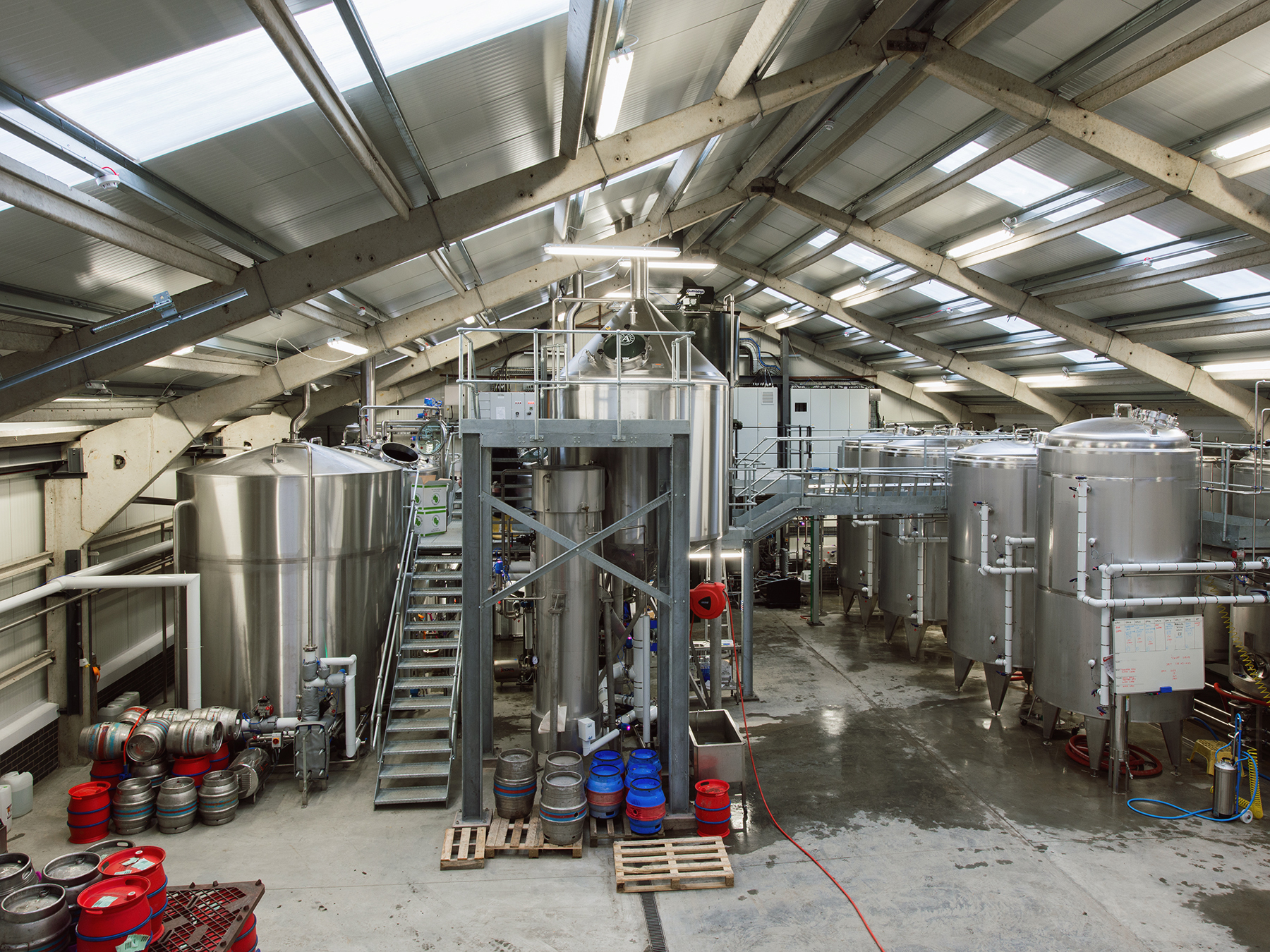
It’s that clarity – of product, of purpose, of values – that defines every decision, from the brewery’s design to new product development and how it tells its story. Everything is driven by long-term thinking and a commitment to do things right.
That strategy has helped turn a small rural outfit into one of Scotland’s most respected independent breweries, known for award-winning craft beers and the hugely popular FyneFest, which draws thousands to the area every summer for a weekend of beer, food and music.
Scaling with purpose
Regular investments in equipment upgrades, new talent and customer experience are made not to fuel rapid expansion but to strengthen Fyne Ales for the future, whatever it may bring. Every step reflects patience over shortcuts, place over trend, quality over hype. “Our size gives us agility but also keeps us honest,” Jamie explains. “Close relationships with our suppliers, distributors, customers and employees mean we’re accountable in a way big breweries often aren’t.”
A focus on futureproofing led to a transformative investment that continues to underpin its growth: upgrading the original 1,600-litre manual brew kit with a 6,500-litre bespoke system installed in a converted sheep shed near the original brewhouse. “There was a growing feeling that our long-term success hinged on the ability to expand capacity far beyond 14,000 litres a week,” Jamie says.
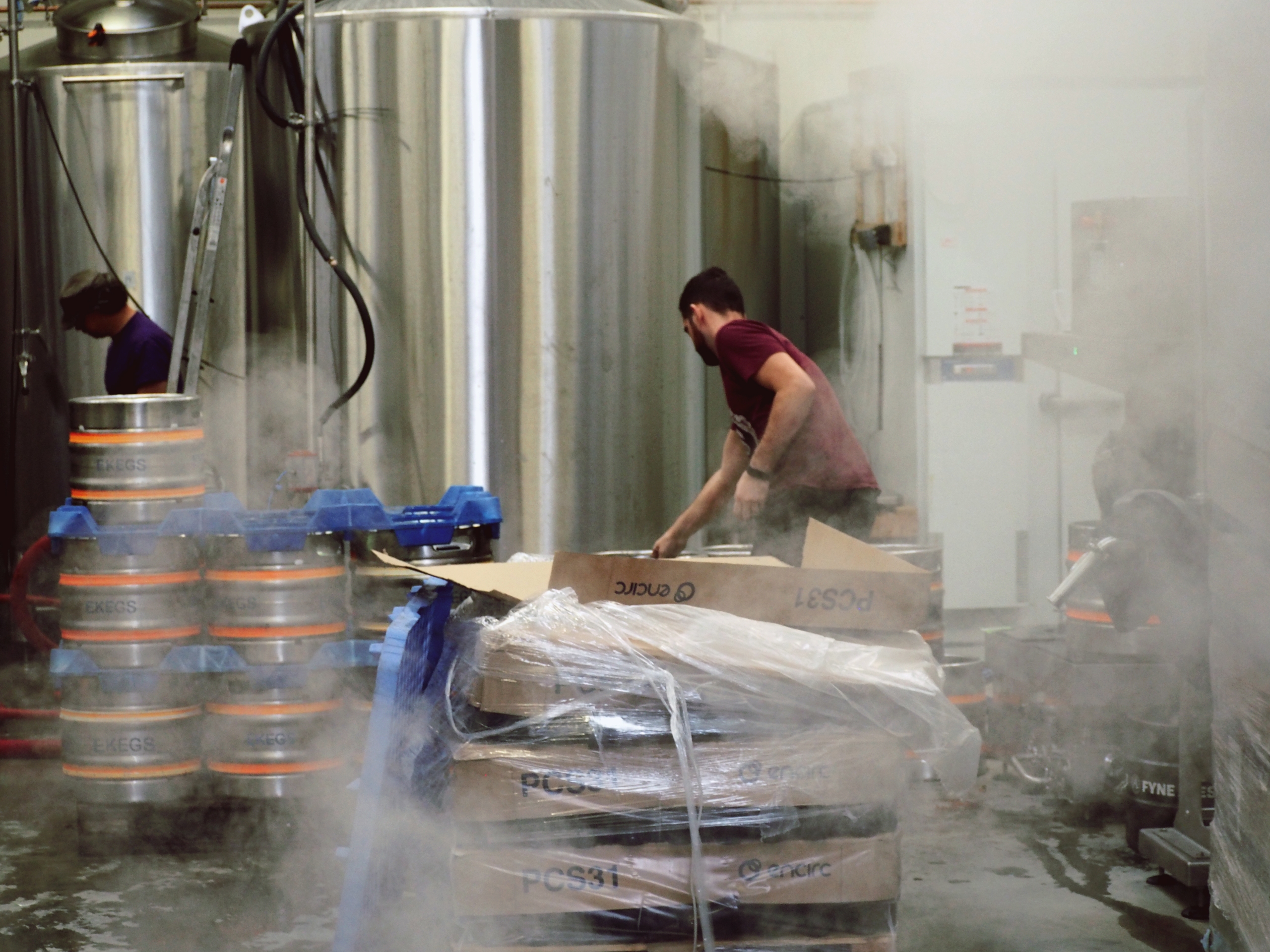
Rather than rush expansion, the team took three years to meticulously plan a move to secure long-term expansion without compromising quality. Compared to the rustic character of the original brewhouse, the new set-up is a showcase for modern brewing – cutting-edge technology, stainless steel tanks and a brewing capacity of up to 100,000 litres a week. “If the old brewery is a rally car – agile, trusty, reliable, the new one is a highly-tuned Formula One car. Precision-engineered for performance,” Jamie says.
The vastly increased capacity has seen turnover triple, with room for the same increase again. And true to form, the old brewhouse lives on, reimagined as Origins Brewing, a project focused on complex, small-batch beers made using foraged ingredients and experimental methods. It’s a living expression of Fyne Ales’s dual ambition – to scale without losing soul.
A focus on incremental gains
Brewing high-quality beer at scale is as much about process design as it is bigger tanks and better technology. “To be trusted by pubs, drinkers and distributors, your beer must taste and perform the same way every time. That comes from designing every process for quality and repeatability,” Jamie adds.
That doesn’t mean stripping out craft; it means knowing where to focus. The team treats brewing as an exercise in continual improvement, with a methodical approach taken to tackle bottlenecks – upgrading brewing capacity, adding fermentation tanks, and recently, installing a £100,000 centrifuge. Made possible thanks to a grant from Zero Waste Scotland and Asset Finance from Bank of Scotland, the centrifuge reduces the time it takes for beer to clarify and mature, delivering a higher output from the same footprint.
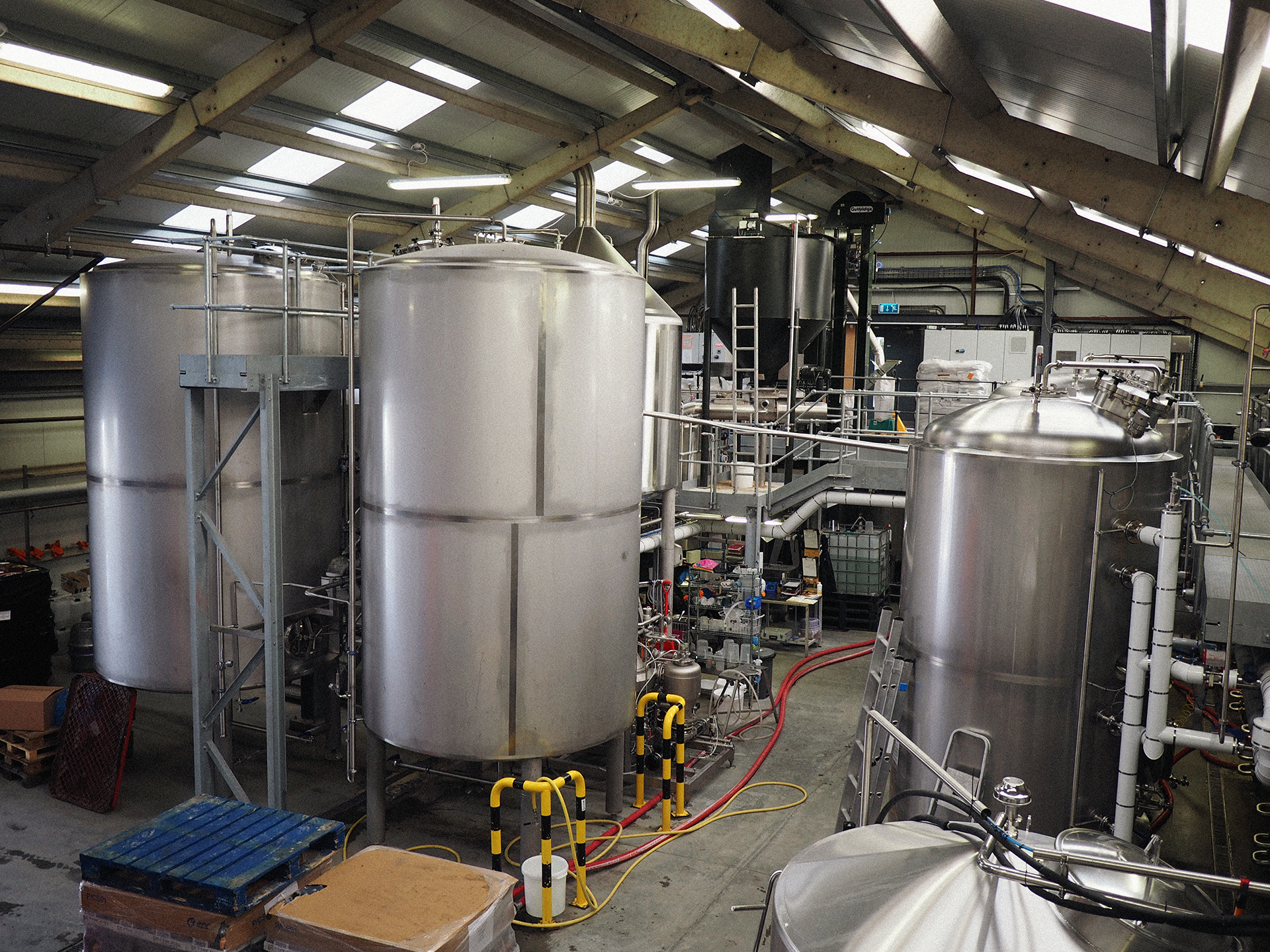
Beyond headline investments, the team is constantly fine-tuning variables like chemistry, temperature and timing to improve both yield and consistency. And while brewing may remain an artisan craft, the systems behind it are increasingly data-driven.
In recent years, the business has taken a more targeted approach to digital tools, developing a bespoke system tailored to its specific operational needs rather than relying on off-the-shelf software. This custom platform reflects a decisive shift toward using data to measure, analyse and control every aspect of production. A key focus has been ensuring it integrates with other core systems, from stock and delivery to finance, creating a clearer, more responsive business.
Rural resilience, engineered for tomorrow
Fyne Ales’s unending pursuit of efficiency goes hand-in-hand with its emphasis on sustainability. Having no access to mains water or sewage means the business has had to develop a circular ecosystem. Today, 90% of the brewery’s waste by weight is reused, with spent grain feeding the estate’s cattle and deer, and waste hops composted back into the fields.
“We’re not doing this to sound good. We’re doing it because it makes sense,” Jamie says. If we look after the land, it looks after us. That’s always been the case here.”
Rainwater collected from the surrounding hillsides feeds the entire operation, with a bespoke £250,000 treatment plant ensuring effluent returns clean to the river. Solar panels power the shop and taproom, with additional roof and potential ground-mounted arrays planned. Given Scotland’s weather, solar alone won’t be enough, so feasibility studies are underway for a micro-hydro system.
But its toughest sustainability challenge, like for many brewers, is heating. Fyne Ales relies on heat from an oil-fired boiler to break enzymes down into starches, extract hop flavours, control fermentation and sterilise equipment. And there’s no easy replacement. “Small-scale anaerobic digesters, electrification, even hydrogen could help. But there isn’t a perfect solution yet, so we’re watching the market closely.”
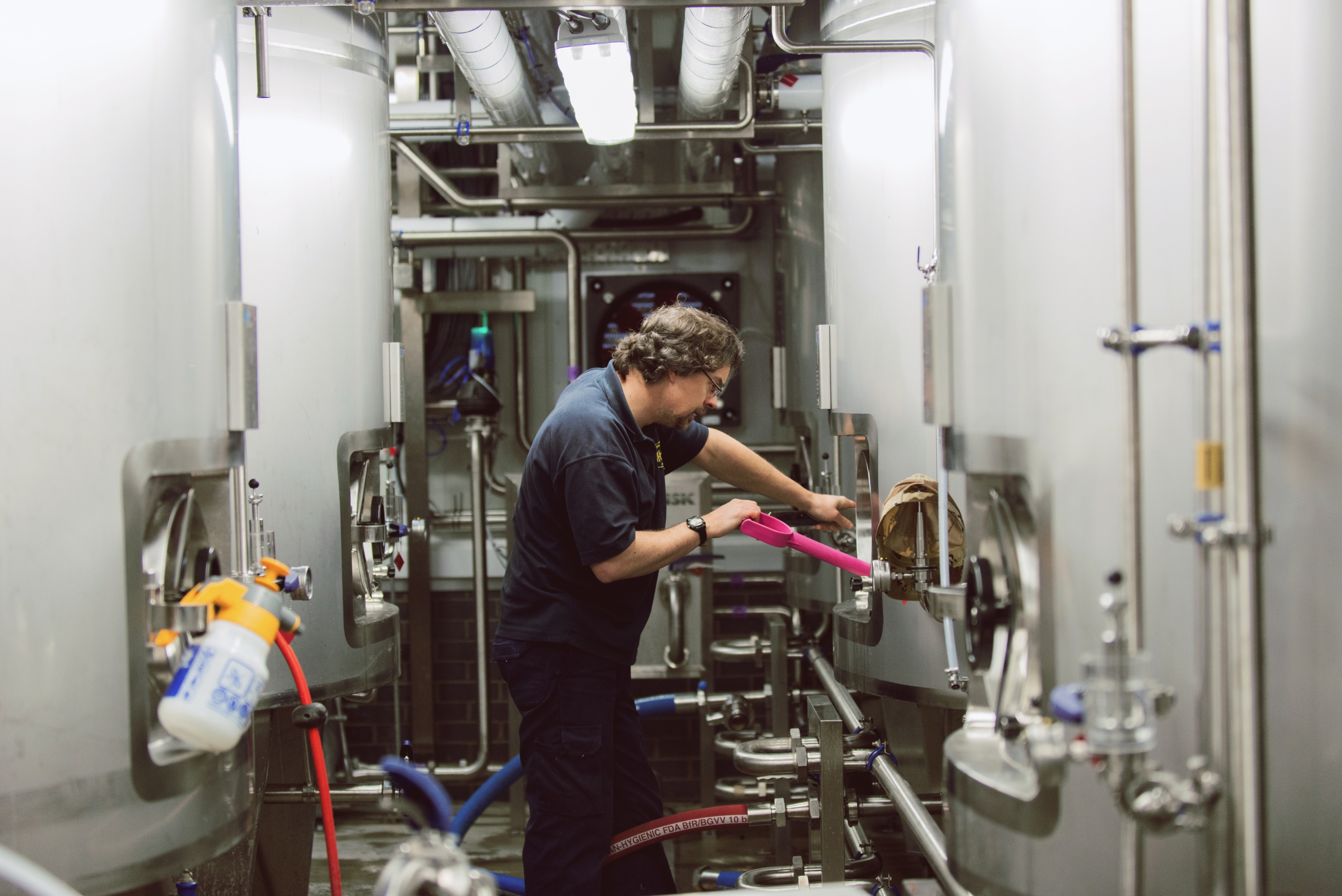
Upcoming projects elsewhere include bringing canning onsite to streamline packaging, and capturing carbon dioxide released during fermentation – turning waste CO2 into a resource for resale to pubs or reuse onsite. The vision is a regenerative, near net-zero operation: low impact, high efficiency and fully self-sufficient.
A blueprint for the future
Representing over 80% of total sales, pubs will remain a core growth channel for the business. However, access to draught lines continues to be a challenge. As Scotland’s Regional Director of the Society of Independent Brewers (SIBA), Jamie is actively working to level the playing field for small brewers. A recent policy win now requires tenanted pubs in Scotland to offer at least one local guest beer. While modest, this shift could reshape market access for independent breweries across the UK.
Looking ahead, Jamie is positioning the business to capitalise on new opportunities in supermarkets, English pubs and export markets. Plans are already underway to expand brewing and cellaring capacity, alongside targeted automation projects, primarily in packaging. Construction of a farm restaurant is also in the works to further broaden the visitor offering. Yet, Jamie is clear these developments won’t come at the expense of the brewery’s identity.
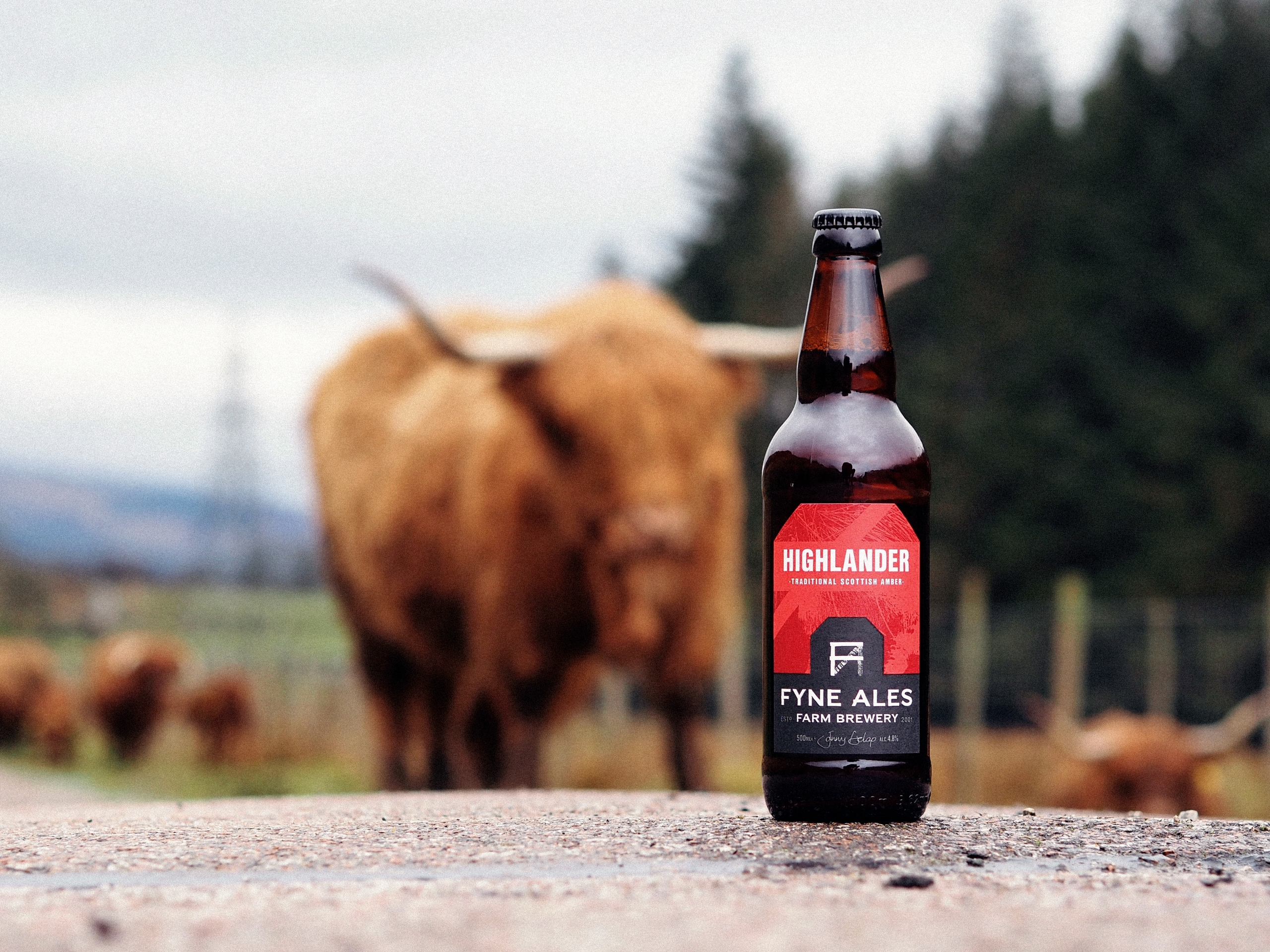
As Fyne Ales enters its next chapter, strategic backing from Bank of Scotland is proving instrumental. “Our relationship with David Drylie, our Relationship Manager, has been a real enabler,” says Jamie. “When shown around our operation, it was clear he understood not just the specifics of our processes, but also what we’re about as a business. His genuine interest, combined with a strong grasp of manufacturing, meant his questions were intelligent and on point from the start. That led to three solid proposals, two on financing and one on insurance; all of which we’ve already acted on.”
David Drylie from Bank of Scotland adds, “Fyne Ales is a prime example of a business prioritising sustainability and biodiversity in every aspect of its operations, making it a perfect fit for Bank of Scotland’s green finance initiatives.”
In an industry chasing speed and scale, Fyne Ales demonstrates the kind of strategic discipline many businesses champion but few truly practice. Its refusal to compromise on quality or values has only fuelled its momentum. With a clear vision, measured investment and an unshakeable commitment to doing things ‘better’, Fyne Ales proves that the patient path can be just as powerful as the fast one.